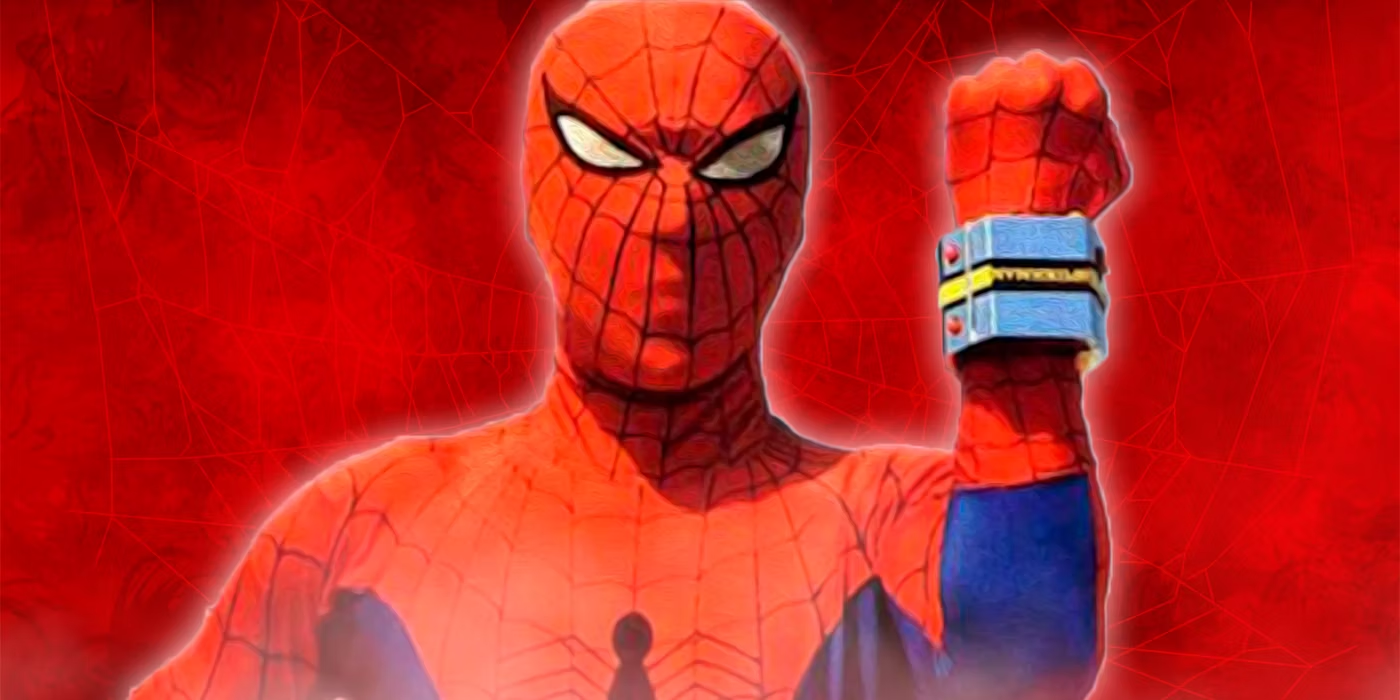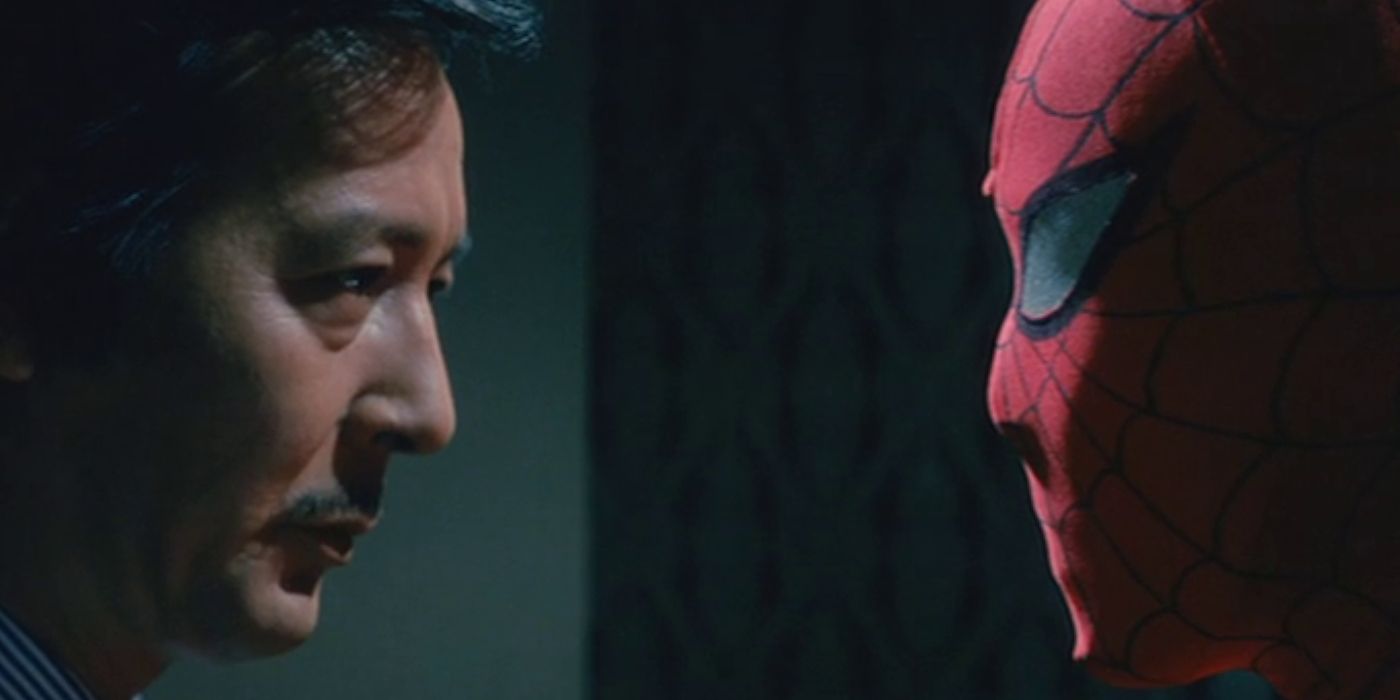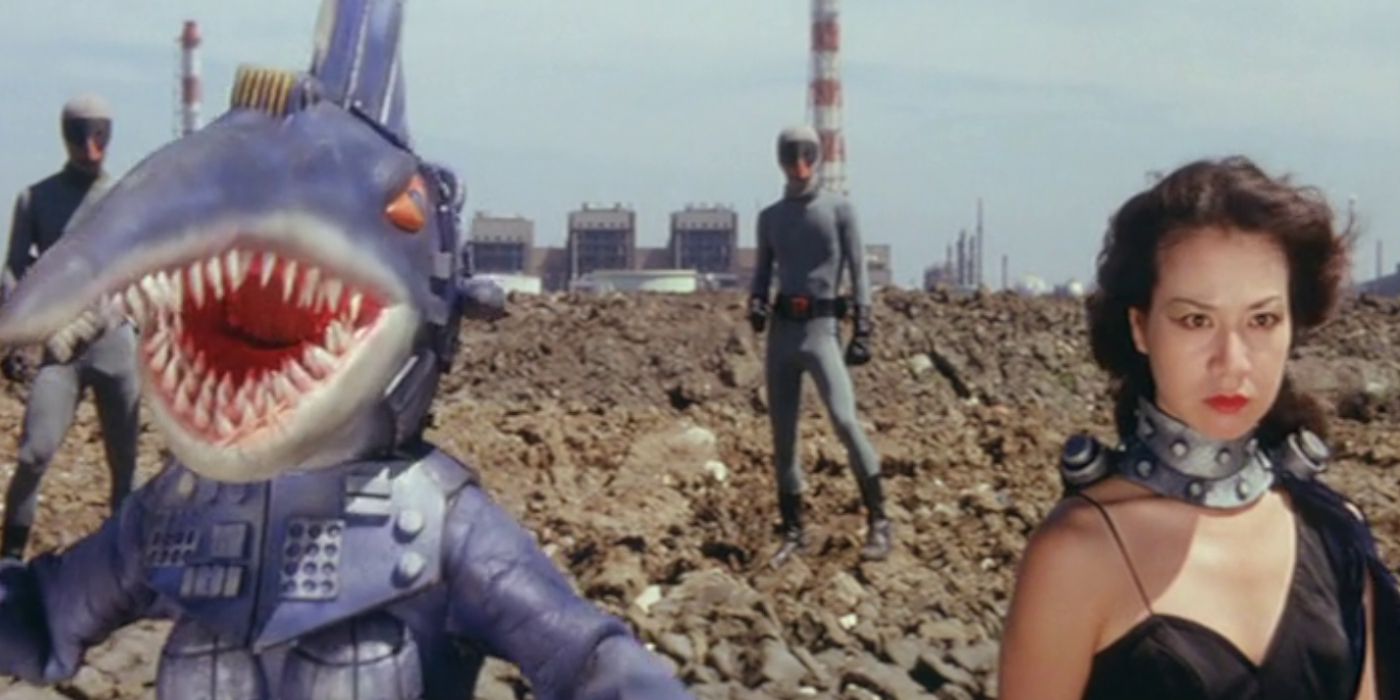
Spider-Man is an iconic hero who has successfully jumped from comics to the silver screen, being the star of many successful movies. In fact, Spider-Man has been a big-screen hit ever since his movie debut in 1977. However, while people often talk about Sam Raimi's films from the early-2000s and the entries in the MCU, the other Spider-Man movies tend to get overlooked or forgotten. And there is no Spider-Man film more forgotten than 1978's Spider-Man.
One reason for the film's obscurity is that this film isn't in the Marvel comics continuity. Instead, this film is part of the now-legendary Japanese Spider-Man continuity. In the late 1970s, Toei and Marvel entered a special three-year deal that allowed both studios to use the others' characters. So, while Marvel got to use the robots from Wakusei Robo Danguard Ace and Chōdenji Robo Combattler V in their Shogun Warriors comics, Toei got to make a Spider-Man TV series. Toei decided to turn Spider-Man into a live-action tokusatsu show in the vein of its already popular Super Sentai and Kamen Rider franchises.

In an effort to better appeal to Japanese audiences, Toei made several massive changes to Spider-Man's lore. No longer was Peter Parker under the mask. Instead, motocross racer Takuya Yamashiro took up the mantle of Spider-Man. Takuya got his powers after discovering a crashed spaceship holding Garia, an alien from Planet Spider. Planet Spider was devastated by the evil Professor Monster and the Iron Cross Army. Garia had been tracking Professor Monster across the universe in the hope of bringing him to justice. However, due to the crash, Garia asks Takuya to carry on his work and injects Takuya with his alien blood, giving Takuya the Spider-Man powers. Garia also gifts Takuya his special suit and access to his spaceship called the Marveller, which can transform into a mighty robot called Leopardon.
The 1978 Spider-Man film is set between episodes 10 and 11 of the TV show. The entire team behind the TV production reprises their roles with Kōichi Takemoto directing and Susumu Takaku writing the screenplay. In fact, the only difference between the TV show and the movie is that the movie is presented in widescreen. The film even has the run time of the TV show, only lasting for 30 minutes. This short length is because Spider-Man was shown as part of the Toei Manga Matsuri film festival, a yearly event where Toei would screen movies and shorts based on their largest franchises in two to three-hour marathons.

The film follows Spider-Man as he tries to stop the Iron Cross Army's latest evil plan. This plan involves their newest Machine BEM monster, the Sea-Devil. The Sea-Devil is a giant cyborg swordfish that can shoot torpedos from its mouth. The Iron Cross Army plans to use this monster to destroy several important industrial sites while also trying to learn Spider-Man's identity. While all this is occurring, Spider-Man meets Jūzō Mamiya, the head of Interpol's Secret Intelligence Division. Jūzō deduces Spider-Man's true identity and asks Spider-Man to work with Interpol to take down the Iron Cross Army. This is the start of a long-running friendship as Jūzō would reappear throughout the main television series, making this movie crucial to the main storyline.
Interestingly, the movie did get released in America. In 2009, Marvel uploaded Japanese Spider-Man to its website with English subtitles. However, the movie was renamed Episode 0. This was likely confusing for viewers watching for the first time as the film presumes you're already familiar with Japanese Spider-Man's lore. Unfortunately, these episodes were removed from Marvel's website a short while later, making the film difficult to find today.
Spider-Man is a fantastic piece of vintage tokusatsu action. While it lacks the budget of modern Marvel films, it is still a fun watch, especially when you realize that everything is done with practical effects and ropework. Spider-Man represents a unique period in media history where two companies could basically swap franchises with one another because people's ability to see media outside of their home country was limited. It also represents a unique period in Toei and Marvel's history, with both companies keen to try new and creative things in the hope of landing a big hit.
Superhero Rom-Com Love After World Domination Licensed by Funimation
0 Comments